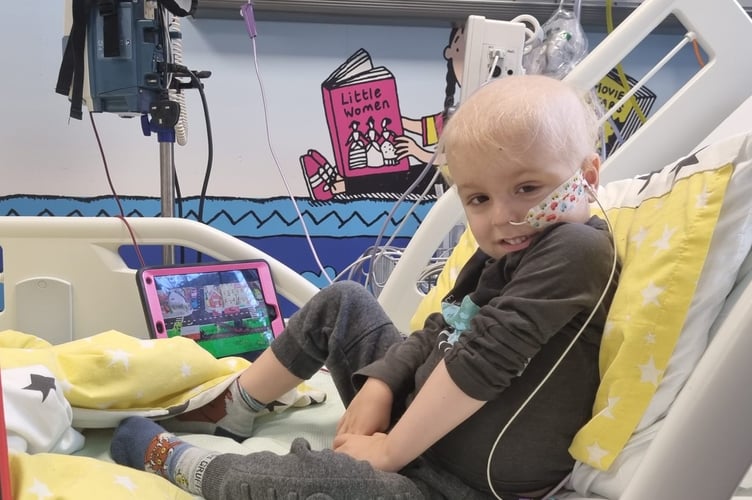The parents of a six-year-old boy who has spent half his life being treated for leukaemia have described how he is now full of energy after many months of agony when he seemed at times to be vanishing before their eyes from the chronic side-effects of his medication.
Clare Peers, from St John’s, said her elder son George had six months that were “truly horrific for him” after the diagnosis when he was 2½ .

“His induction treatment caused such pain and weakness in his muscles that he lost the ability to walk and he felt so unwell that he barely spoke,” Clare said.
“It felt like our little boy was vanishing before our eyes.
“Even once we were through the first six months and into ‘maintenance treatment’, George still had a monthly chemo pulse followed by five days of steroids and other treatment.
“The steroids caused a number of side effects, including mood swings, rage, tiredness, constant hunger, and generally feeling irritable but without him fully being able to communicate this effectively with us.”
Clare said she and her husband James, who also have younger son, Henry, 4, received help in dealing with the huge strain that George’s illness and treatment put upon them.
“The stress of the past three years has been really tough.
“We have worked hard to communicate our feelings with each other, sought counselling from charities such as Momentum Children's Charity, known when we needed space or a hug, and learnt to be patient.
“James runs his own IT company and so I had to take the lead on the hospital visits and stays.
“At times this was really challenging bearing in mind we also had our darling Henry who had turned one just two days before George’s diagnosis.
“I missed Henry when I was at the hospital with George and missed George and felt guilty when I was at home with Henry.
“It also took a huge toll on our wider family.”
The treatment finally ended in July when George, whose start at school had to be delayed a year, rang the special bell to mark the milestone in the ward at the Royal Marsden Hospital in Sutton where he spent most of the past three years.
“He’s still adjusting to the changes in some ways, given that his version of ‘normal’ was actually his treatment,” Clare said.
“But he is now enjoying life without the constant interruptions of treatment, feeling unwell post treatment and the constant unplanned hospital stays.
“George is now full of energy and throwing himself into all the new opportunities which have presented themselves, including returning to swimming lessons, beginning football training and also doing an hour of gymnastics a week.
“There would have been absolutely no way that George would have managed such a busy schedule on top of school while he was in treatment.
“We feel so grateful to those who have consistently been there to support us all.
“It is a team effort when you receive a diagnosis like this.”




.png?width=209&height=140&crop=209:145,smart&quality=75)